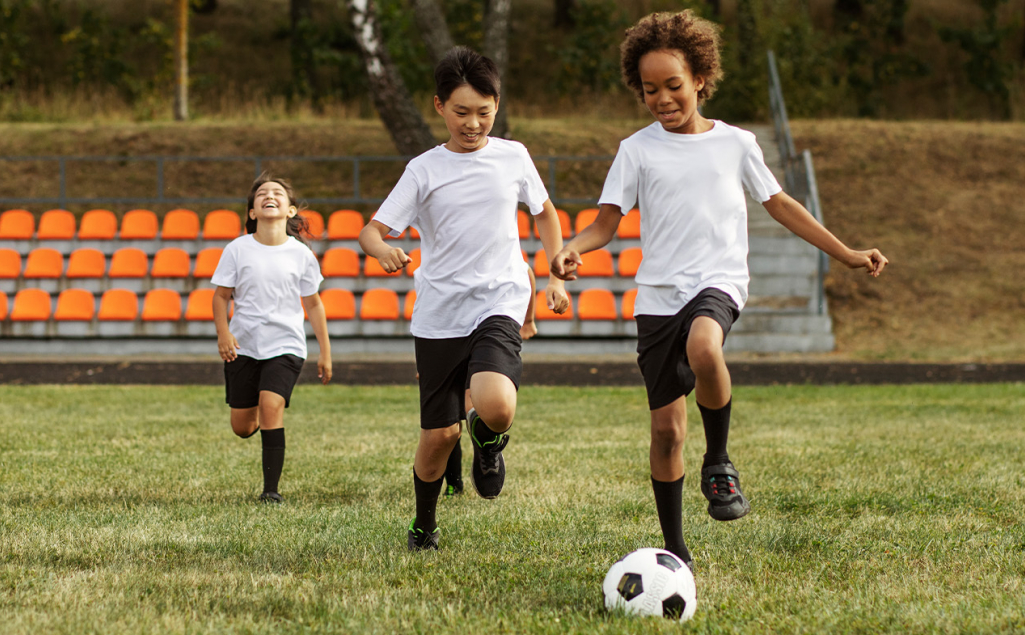
Concussion Management for Athletes, Parents, & Coaches: What to Look For and When to Get Evaluated
It's August, and we are holding on to every last ounce of summer we can. However for many of us, fall sports tryouts and practices are well underway. With any sport comes risk of injury, but injuries resulting in possible concussions can be a little harder to identify — which is why it’s so important to understand concussion protocol in the sports arena, and beyond.
The Impact of Concussions on Athletes
If you get injured with a bump or jolt to the head, you may know to watch for concussion symptoms, but concussions aren’t always caused by head injuries alone. Violent shaking of the head or an impact to the upper body can also cause concussions.
Why is this the case?
Our brains, which are gelatin in consistency, rely on our skulls to provide protection. But when a bump to the head, neck, or upper body happens, the impact can cause the brain to bump against the inner walls of the skull.
If that brain bump is severe enough, it can cause a concussion.
Which is why, it’s important to watch for the symptoms of a concussion after a blow to the head or body, which can include:
-
Headache or ringing in the ears
-
Sensitivity to light or blurred vision
-
Nausea or vomiting
-
Fatigue or drowsiness
-
Memory issues
-
Loss of consciousness
The good news is that sports equipment and technology have come a long way, not only in the treatment of concussion symptoms, but also in prevention.

Preventative Measures
Safety has become paramount in most sports programs, with advances in equipment and technology used to help protect athletes.
Here are some common preventative measures to adhere to, in both sports and in everyday life:
-
Wear protective gear during sports or recreational activities (i.e. helmets for skiing, bicycling, football, baseball, and hockey).
-
Utilize headgear with sensors that can help detect head injuries.
-
Wear your seatbelt to help prevent head injuries from minor traffic accidents.
-
Provide safety measures at home (block off stairways, install window guards, and remove area rugs that may present a trip and fall hazard).
Education has also become a key component of preventing and recognizing concussions, with schools receiving guidance on concussion protocol, and coaches and teachers often receiving training as well.
Concussion Management and the Role of Medical Professionals
When it comes to the safety and well-being of young athletes, medical professionals play a vital role in concussion management. Medical professionals have the knowledge and experience to recognize the signs of a concussion and assess its severity.
Through careful evaluation, they too can help determine when it's safe for an athlete to return to play. Sometimes, rest and specialized exercises are needed to allow the brain to heal properly.
It’s also important to sometimes overrule your young athlete when they insist they’re fine if you feel they are still exhibiting concussion symptoms. It is always best to remove the athlete when a concussion is suspected. It is just as imperative to have the athlete assessed by a health care practitioner when in doubt.
Return to play and return to learn standards are key elements of a successful concussion recovery. Sitrin’s professionals stay up to date with the most recent evidence and guidelines to ensure a safe return to play/learn is established. In fact, our evaluation and intervention program Equili·BRAIN·ium uses a baseline concussion assessment after a head injury occurs. Using a force plate system, trained concussion management specialists run several balance evaluations and ask specific questions regarding the person’s thought process during the assessment.
A Team Approach
Concussion management for athletes requires a team approach, where coaches, parents, and players all understand preventative measures, concussion symptoms, and when to enlist the help of medical professionals.
At Sitrin, our dedicated team is here to help. Whether you're seeking assistance for yourself, a family member, or a friend, we offer personalized and compassionate care to meet your unique needs. Contact us today!

